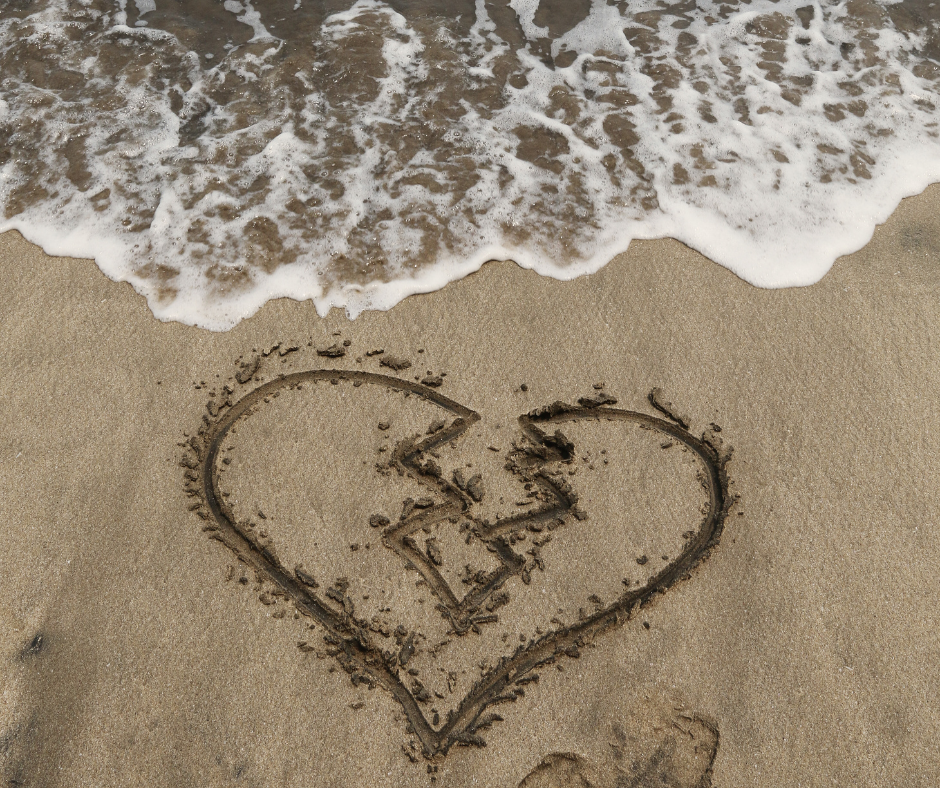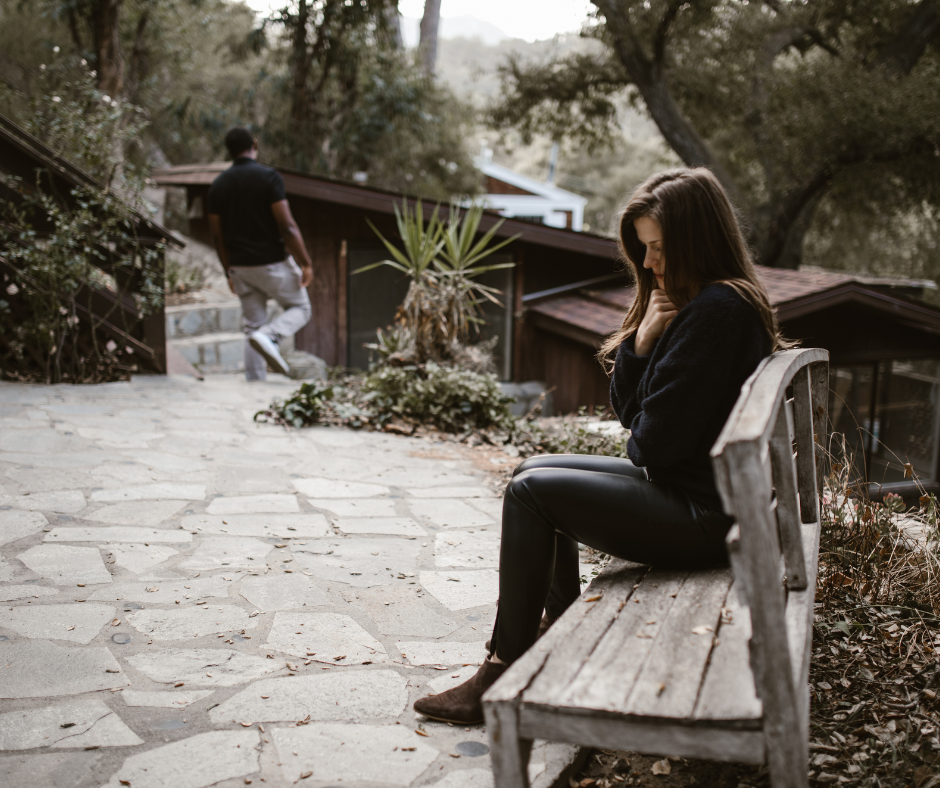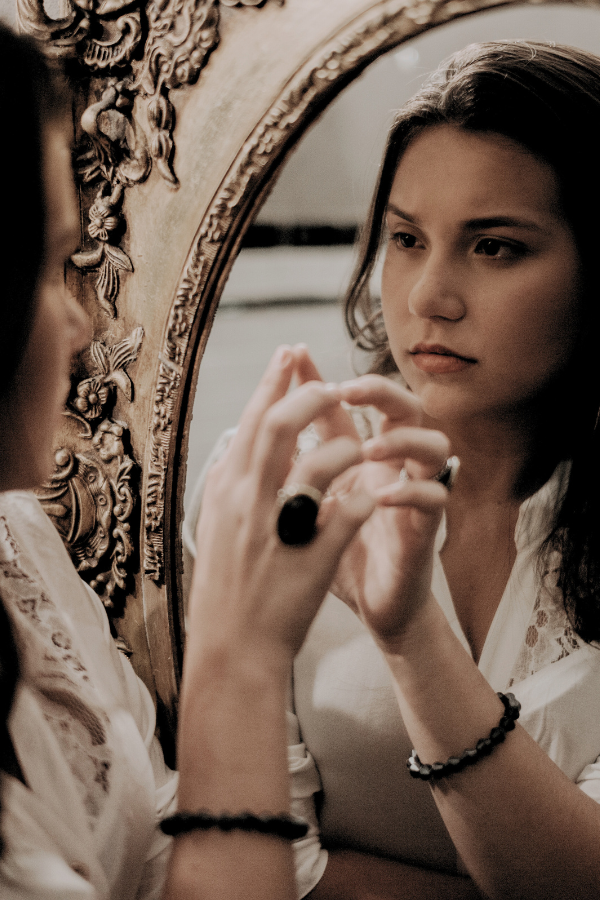

The Friendship Breakup: How to Let Go of Toxic Relationships Gracefully
Summary
Friendship breakups are uniquely challenging, especially for women who are conditioned to prioritize harmony and caregiving. This article explores why ending toxic friendships can be harder than romantic breakups, the emotional weight of letting go, and the grieving process that follows. It provides red flags to identify unhealthy friendships, practical steps for navigating a breakup gracefully, and ideas for rebuilding your social circle with healthier relationships. With insights from pop culture and literature, this guide encourages self-care, personal growth, and the courage to move forward.
Reflection Questions
- What emotions arise when you think about this friendship? Do they align with joy and support, or with negativity and stress?
- How has this friendship affected your self-esteem and mental health? Do you feel empowered or diminished by this connection?
- What would you tell a close friend in your own situation? Would you encourage them to stay in a similar friendship, or to let go?
Journal Prompt
Write about a friendship that has been weighing on your mind. What emotions does it evoke, and how does it impact your mental health and personal growth? Reflect on what you need most from this relationship and whether it aligns with your values. If you decide to let it go, what would moving forward look like for you?
Breaking up with a friend can be one of the most emotionally challenging experiences in life—often more difficult than romantic breakups. As women, many of us are raised to prioritize harmony, caregiving, and maintaining relationships at all costs, making it feel almost taboo to walk away from a friendship, even when it’s toxic. Yet, just like romantic ones, friendships can become unhealthy—leaving us drained rather than uplifted. It’s okay to feel conflicted and grieve the end of what was once a meaningful bond, even if letting go is the best choice for your mental health and well-being. The dynamics of a deep friendship can be complicated, bittersweet, and sometimes even damaging. Acknowledging this complexity is the first step toward healing and reclaiming your emotional space, but there’s still more work to do. Let’s get into it.
Why Ending Friendships Can Be Harder Than Romantic Breakups


In our culture, friendships are often romanticized as unbreakable bonds meant to last a lifetime. We grow up hearing phrases like “friends forever” or “best friends for life,” which can make the end of a friendship feel like a failure or betrayal. Women, in particular, are conditioned to prioritize relationships, including friendships, above their own needs, and this can add an overwhelming sense of guilt when those connections no longer serve them.
Unlike a romantic breakup, which tends to be more socially acknowledged and normalized, friendship breakups often feel invisible, leaving us without the same emotional support or cultural scripts to navigate them. This lack of recognition can intensify feelings of isolation and sadness when we choose to end a friendship.
The Emotional Weight
Close friendships are deeply interwoven with our sense of identity and belonging, often spanning years or even decades. A friendship breakup means more than losing a companion; it can feel like losing a part of yourself. These relationships carry layers of shared history, inside jokes, and vulnerable moments that can’t simply be replaced.
Because friends often witness the highs and lows of life, their absence can leave an emotional void that is difficult to fill. This emotional weight can make it harder to move on, especially if you’re still part of the same friend group or have mutual friends who remind you of what was lost. Letting go of such a significant connection is no small task.
The Grief Process


Just like romantic breakups, the end of a friendship can trigger a grieving process. Even in the case of a toxic friendship, it’s natural to feel sad about what you’ve lost, including the potential of what the friendship could have been.
Grief doesn’t just stem from the absence of a friend but from the adjustment to a new reality where the dynamic no longer exists. You might mourn not only the person but also the version of yourself you were with them.
Accepting this grief as valid—even if the friendship ended for the right reasons—can help you process the emotional loss in a healthy way. Remember, grieving is an essential step toward healing and moving forward into healthier relationships.
Signs It Might Be Time to Let Go


Letting go of an unhealthy friendship can be one of the most profound acts of self-respect and personal growth. It’s a reminder that while human relationships are essential, they must also align with your well-being and values.
Consider this thought experiment: Imagine waking up one day without the constant negativity, pressure, or anxiety that this relationship brings. How might your self-esteem, mental health, or overall well-being improve without this toxic dynamic?
By ending a friendship that has a negative impact, you make space for new friendships and positive relationships that better reflect who you are and where you’re going. In doing so, you honor both your past and your future relationships by prioritizing your own growth and happiness.
Red Flag to Watch For: Chronic Negativity or Criticism
A toxic friendship often carries a constant undercurrent of negativity. If you notice your friend frequently criticizing you, your choices, or even your other relationships, it might be a sign of deeper issues. Chronic negativity can erode your self-esteem and create a sense of inadequacy, leaving you feeling emotionally drained after every interaction. While a good friend should challenge you in healthy ways, their words should come from a place of care—not judgment. Reflect on whether their presence in your life uplifts you or weighs you down.
Red Flag to Watch For: One-Sided Effort
Friendships thrive on reciprocity, and when one person consistently gives more than the other, it creates an unhealthy dynamic. If you find yourself always initiating plans, checking in, or supporting your friend while receiving little in return, this imbalance may signal that the relationship no longer serves you. It’s not selfish to expect mutual effort—it’s a basic cornerstone of healthy relationships. Ask yourself: Are you the one holding the friendship together, or is the care and effort evenly distributed?
Red Flag to Watch For: Persistent Feelings of Obligation or Dread Around Them


Friendships should be a source of joy and emotional support, not an obligation that you endure out of guilt. If you frequently feel a sense of dread before seeing your friend or pressure to meet their expectations, this may indicate an unhealthy relationship. Pay attention to how your body reacts before and after spending time with them—do you feel uplifted or depleted? Friendships, even long-standing ones, shouldn’t feel like a chore.
Red Flag to Watch For: Manipulative or Controlling Behavior
Manipulation in a friendship can be subtle but deeply harmful. A toxic friend might guilt-trip you into spending time with them, isolate you from other friends, or dismiss your boundaries to maintain control. This behavior creates a dynamic where you feel you’re walking on eggshells, always adjusting your actions to avoid conflict. Recognizing manipulation is the first step to breaking free from its grip. Healthy friendships allow for individuality and respect, not control.
Reflection Questions
- Does this person bring joy or drain energy? A good friend leaves you feeling supported and valued, while a toxic friend often leaves you feeling sad or stressed. Think about how you feel after each interaction to assess their impact on your life.
- Are you growing or shrinking in this relationship? Friendships should nurture personal growth, not stifle it. If you feel stuck or like you’re hiding parts of yourself to maintain the friendship, it may be time to reevaluate.
- If a friend described this friendship to you, would you encourage them to stay? Stepping outside your own situation can offer valuable insights. Imagine a loved one telling you about this friendship—what advice would you give them?
Navigating the Breakup Gracefully


Reaching the decision to end a friendship is never easy, but recognizing when a relationship no longer aligns with your well-being is an act of self-awareness and self-respect. A friendship breakup (or one with a family member), like any major transition, requires thoughtfulness and care to navigate.
While the process may feel daunting, approaching it with grace and compassion can help both you and your former friend move forward in a healthy way. Before the conversation, follow these practical tips so you have clarity and empathy.
Before the Conversation…
Reflect on Your Boundaries and the Reasons for Letting Go
Before you take action, spend time reflecting on your own needs and the dynamics that led you to this point. Ask yourself: What specific behaviors or patterns made this friendship unsustainable? Are there boundaries you’ve tried to set that were repeatedly ignored?
Understanding your reasons clearly can bring you peace of mind and help you approach the breakup with confidence. This step isn’t just for your own clarity—it’s also about honoring the history of your relationship and making sure your decision feels intentional and thoughtful.
Fuel your creative fire & be a part of a supportive community that values how you love to live.
subscribe to our newsletter
*please check your Spam folder for the latest DesignDash Magazine issue immediately after subscription


Decide Whether a Conversation Is Necessary or If the Relationship Can Naturally Fade
Not all friendship breakups require a formal conversation. In some cases, simply limiting contact and letting the friendship fade naturally can be the gentlest option for both parties. However, if the friend is close or there’s a chance for misunderstanding, a direct but kind conversation might be necessary.
Consider the nature of your relationship, your friend group, and your own situation before deciding. There’s no one-size-fits-all approach, so choose what feels most aligned with your values and the friendship.
If You Decide to Have a Conversation…
Prepare to Use “I” Statements to Express Your Feelings Without Blame
If you decide to have a conversation, frame your feelings with “I” statements to avoid placing blame. For example, you might say, “I feel like we’ve grown in different directions” instead of “You always do this or that.”
This helps keep the focus on your perspective rather than pointing fingers, which can escalate tensions. Acknowledging the good aspects of the friendship while gently expressing why you need space creates a tone of mutual respect, even if the relationship is ending.
Stay Calm and Focused; Avoid Rehashing Old Grievances
A friend breakup is not the time to relitigate every past hurt or misstep. Instead, stay calm and focused on the present, emphasizing the decision to move forward. If emotions run high, remind yourself that your goal is clarity and closure, not to assign blame or win an argument. Maintaining a centered and respectful tone ensures the conversation, while difficult, doesn’t add unnecessary negativity to the relationship’s ending.
After the Conversation…
Allow Yourself Space to Process, but Avoid Falling into Guilt Traps
Even if you know ending the friendship was the right decision, it’s natural to feel a mix of relief and guilt afterward. Give yourself space to process these feelings without judging them.
Remember that your mental health and well-being are valid reasons to prioritize your own needs. Guilt can be a natural part of the grieving process, but dwelling on it doesn’t serve you—or your former friend—in moving forward.
Lean on Other Supportive Friendships or Communities for Comfort
Losing a friendship, even a toxic one, can feel like a significant loss. Surround yourself with emotional support from healthy friendships, family members, or safe spaces where you feel understood.
Whether it’s spending time with other friends or joining clubs or communities aligned with your interests, investing in new connections can help ease the transition. This is also an opportunity to strengthen the positive relationships in your life and cultivate new friendships that reflect your growth.
Sometimes Relationships Serve Us for a Season, and It’s Okay to Let Them Go
Not all relationships are meant to last forever, and that doesn’t diminish their value. Friendships, like all human relationships, often come into our lives to teach us something or help us grow in a particular phase of life.
When a friendship ends, it’s not necessarily a failure—it’s an evolution. By letting go of an unhealthy friendship, you honor the role it played while also making space for healthier relationships and personal growth. Trust that the end of a friendship can be a step toward building a life that feels more aligned with your values and well-being.
Working Through Your Heartbreak: Recognizing the Stages of Grief


Grieving a lost friendship often mirrors the emotional process of other significant losses. You may find yourself moving through stages like denial (“This can’t really be happening”), anger (“How could they treat me this way?”), bargaining (“Maybe if I had done this differently…”), depression, and, eventually, acceptance.
It’s important to know these stages aren’t linear—you might cycle through them at your own pace. Acknowledging your feelings, even the contradictory ones, can help you process the end of a friendship in a healthy way. You can miss your friend deeply while still knowing that stepping away was the best choice for your well-being.
Try one of the following healing practices to help you make sense of your loss (whether it’s a romantic relationship or a friendship).
Journaling or Writing a Letter to the Friend
Putting pen to paper can help you untangle the emotions surrounding the end of your friendship. Write down your thoughts, memories, and unresolved feelings in a journal or draft a letter to your former friend—even if you never send it.
This act of expression can be a safe space for reflection and clarity, helping you process the grief and gain valuable insights into your own needs. Seeing your feelings laid out can also be a powerful reminder that you’re working toward personal growth and healthier relationships.
Practicing Mindfulness or Meditation to Process Emotions


Grief can be overwhelming, but mindfulness and meditation offer grounding tools to help you navigate the emotional waves. Practicing mindfulness allows you to sit with your feelings without judgment, observing them as they come and go.
A meditation practice, even just five minutes a day, can help you reconnect with yourself, prioritize your well-being, and make peace with the end of the friendship. This quiet time offers space for healing and a reminder that moving forward doesn’t mean forgetting—it means honoring your own needs.
Finding Creative Outlets to Channel Your Feelings
Creative expression can be an emotional release during difficult transitions. Whether you pick up a paintbrush, compose music, or dance around your living room, channeling your feelings into a creative outlet can provide relief and renewal.
These activities give you a way to process the complex emotions tied to a friend breakup while also reconnecting you with your sense of joy and accomplishment. Creativity transforms grief into something tangible and healing.
Investing in Relationships That Are Reciprocal and Uplifting
Rebuilding your social circle starts with seeking out relationships that feel nourishing and mutual. Invest your time in people who genuinely care about your well-being and who inspire you to be your best self.
These relationships, whether with old friends or new connections, should feel like safe spaces where both people give and receive equally. Healthy friendships are built on trust, respect, and shared joy—qualities that will uplift you as you heal.
Remembering That True Friendships Are Rare, and That’s Okay
In a world that often prizes popularity and expansive social networks, it’s important to remember that the depth of your friendships matters more than their number. True friendships are rare and don’t require constant validation to thrive.
By focusing on meaningful, reciprocal connections, you build a life filled with emotional support and authentic bonds. Letting go of toxic friendships opens the door to relationships that truly reflect your values and growth.
Final Thoughts: Lessons About Friend Breakups from Pop Culture and Literature
In our final words of this article, we encourage you to reflect not just on your own experiences but also on those within the pages of our favorite books and reels of our favorite movies. Pop culture and literature offer valuable insights into the complexities of toxic friendships and their endings.
A striking literary example is the relationship between Elena and Lila in Elena Ferrante’s My Brilliant Friend. Their friendship is as compelling as it is tumultuous, filled with deep affection, envy, and moments of toxic competitiveness. While their bond sustains them through many trials, it also highlights how a friendship can become emotionally draining and even damaging. At times, both characters must create distance to protect their own sense of self, demonstrating the difficult but necessary act of setting boundaries in a relationship that no longer serves their well-being.
In Beaches, the lifelong bond between C.C. and Hillary also faces strain as their differing paths lead to jealousy and resentment, showing how even cherished friendships can have unhealthy dynamics. Similarly, Little Women portrays moments of rivalry and tension between Amy and Jo, reminding us that even close relationships sometimes require reflection and adjustment to remain healthy. Sometimes, this means separating yourself from that friendship until it can be revisited and molded into a healthy relationship.
These stories teach us that friendships, even those rich with love and history, can become toxic and need to be reevaluated. As you reflect on your own lost friendship, take comfort in the universality of these literary women’s experiences—they remind us that letting go isn’t about erasing the value of the past but about creating space for healthier relationships and personal growth. Sometimes, the most profound act of self-care is knowing when to walk away.








